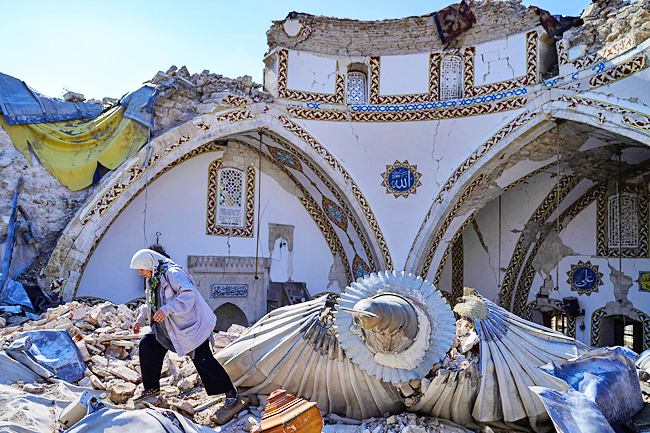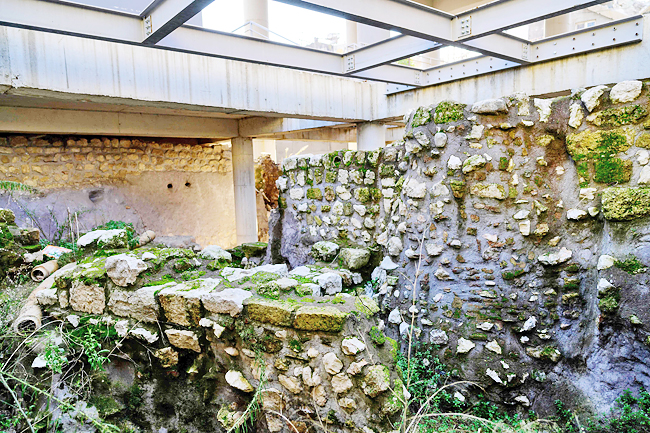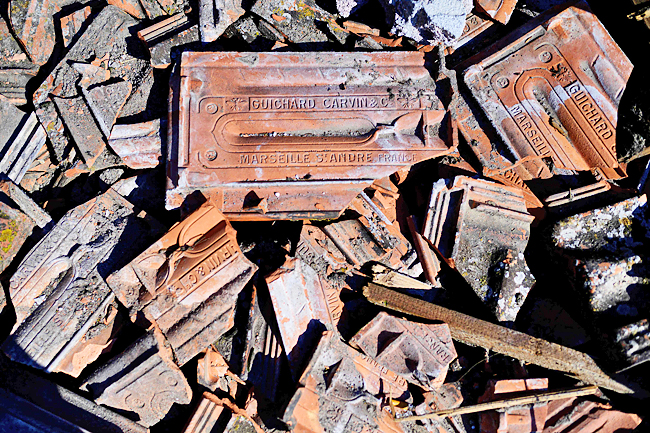ANTAKYA, TURKIYE (AFP) – The smashed dome of the ancient mosque, considered to be Turkiye’s oldest, covers rubble that used to be a prayer hall.
Once a home to a myriad of civilisations, the southern city of Antakya lies in ruins after the 7.8-magnitude quake on February 6.
Fourteen centuries of history were ravaged in less than two minutes in Antakya, a fabled ancient Greek centre known throughout most of its history as Antioch.
Erected in 638CE, the Habib-i Neccar was “the first mosque built within modern-day Turkiye’s borders”, according to the government’s culture portal.
Only its walls have survived, leaving delicate yellow, red and blue paintings and calligraphy exposed to the winter sky.
“A bit of Prophet Mohammad’s (pbuh) beard was once preserved in a box” at the mosque, said Havva Pamukcu, 50, wearing a headscarf.
“I’m heartbroken,” she said.
A few hundred metres away, a Greek Orthodox church erected in the 14th Century – and rebuilt in 1870 after another earthquake – is also gone.



A white cross that once stood on its pointed roof now lies atop shattered walls and broken pieces of wood.
“All the walls have fallen. We’re in despair,” said member of the council managing the church Sertac Paul Bozkurt.
Antakya is in Hatay, a province tucked between the Mediterranean Sea and Turkiye’s border with Syria.
It was one of the worst affected by the earthquake and its aftershocks, which have claimed more than 35,000 lives across the region.
In the old city, several streets are still inaccessible, blocked by buildings flattened like pancakes and cars trapped under the debris.
Across more than two millennia, the city was home to Greek, Roman, Byzantine, Persian, Arab and Ottoman empires.
It was even placed under a French mandate between the end of the First World War and 1939, when the city became a part of modern-day Turkiye.
A former general of Alexander the Great founded Antioch in 300BCE.
The city has suffered several earthquakes – almost one every 100 years – and is no stranger to rebuilding.
There were devastating quakes in 37BCE, 115CE and 458CE.
A quake in 526CE is thought to have killed 250,000 people. In 1054, 10,000 are thought to have died.
“Antakya is the cradle of several historical events,” said doctoral student at the University of Bayreuth in Germany and author of a book on Antakya Hakan Mertkan.
But it’s also “a cradle of earthquakes, its soil full of history”, he added.
Turkiye, like Syria, is on one of the world’s most active fault lines.
But the region is also “at the centre of much of humanity’s shared ancient history”, said senior programme leader at the International Centre for the Study of the Preservation and Restoration of Cultural Property Aparna Tandon.
The area impacted is home to six UNESCO World Heritage Sites.
Like Aleppo in Syria, Turkiye’s “crossroads of civilisations” was already “60 per cent destroyed in 1822 after an earthquake”, said Youmna Tabet of the World Heritage Convention.
Fortunately, there does not seem to be as much damage at Turkiye’s other heritage sites, said Maria Liouliou, Tabet’s colleague.
The fortress in Diyarbakir seems to have suffered only moderate damage, she said.
But the dangers are far from over now that the worst aftershocks have faded, experts warn.
What looks like “simple cracks” to the “layman’s eyes” can weaken a monument and cause it to collapse weeks later, said Samir Abdulac, who works at the International Council on Monuments and Sites, which seeks to protect historical places.
The experts AFP spoke to all insisted the “priority” was to save lives first. Safeguarding historical monuments must come later.
This was clear when AFP encountered a local official in Antakya, one of many families devastated by the disaster.
“I just lost my two brothers and a nephew. I am evacuating my wife and daughter today,” said the official, who preferred to remain anonymous.
“I have no money, nothing. Frankly I have other priorities than cultural heritage.”







